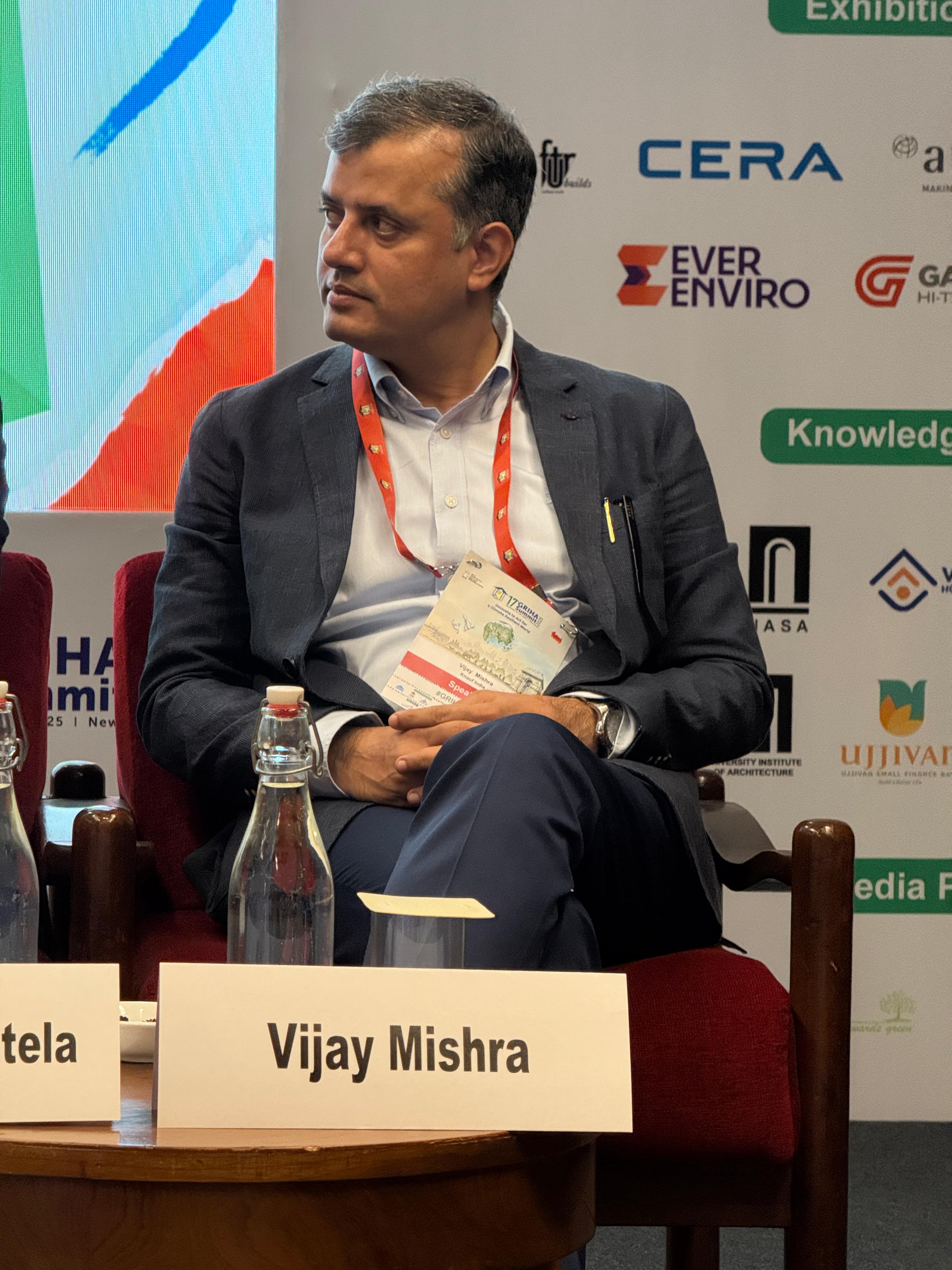Knauf India Highlights Circular Innovation and Sustainable Construction at the 17th GRIHA Summit
New Delhi, 06th November, 2025: Knauf India, World’s No.1 company in Drywall & Ceiling Solutions, reiterated its commitment to sustainable construction and circular material design at the 17th GRIHA Summit, held on November 3–4, 2025, at the India Habitat Centre, New Delhi. The event, themed “Innovate to Act for a Climate Resilient World”, brought together policymakers, architects, engineers, and industry leaders to deliberate on strategies that can drive low-carbon, resource-efficient, and adaptive urban development.

Participating in the thematic panel discussion titled “Waste Not: Fostering Circular Innovation”, Mr Vijay Mishra, Commercial Director, Knauf India, shared insights on how the construction industry can integrate circular design principles into material development, manufacturing, and end-of-life recovery. He emphasised that true sustainability begins not at the end of a material’s life but at the design stage—where durability, reuse, and recycling are engineered into the product.
“The question isn’t only how much we recycle at the end, but how we design materials from the start so they can last longer, be reused, or safely return to the environment. Every square metre we build should contribute to reducing waste, extending material life, and strengthening climate resilience,” said Mr Mishra.
He added that the industry’s shift toward circularity requires collaboration across manufacturers, designers, and policymakers, supported by innovation in material science and responsible sourcing.
“At Knauf, we use synthetic gypsum a by-product from industrial desulphurisation processes —instead of mined gypsum, and our paper liners are made from 100% recycled fibre. These small but scalable actions are helping close material loops and minimise extraction. It’s a practical demonstration of how circular thinking can reduce emissions while maintaining product quality,” he noted.
Circular Design for a Growing Market
India’s construction industry is undergoing a structural shift as builders and designers increasingly adopt dry construction systems for speed, efficiency, and reduced environmental impact. Plasterboards are emerging as the preferred ceiling and wall solution across residential and commercial spaces, replacing traditional POP-based systems that were energy-intensive and labour-dependent.
The country’s ceiling market, once valued at ₹65 crore two decades ago, has grown to over ₹5,000 crore, with consumption of plasterboards expected to rise sharply. India currently consumes 0.13 square metres per capita, compared to the global average of 1.4, indicating both significant headroom and responsibility to grow sustainably.
Mr Vijay Mishra highlighted that Knauf India’s products are developed to meet green building standards such as GRIHA and IGBC, with innovations like the DewBloc Moisture-Resistant Board designed for India’s diverse climatic zones.
“As the market expands, the focus must remain on durability and circularity. The goal is to grow responsibly—by using local materials, reducing embodied carbon, and designing products that support India’s sustainability goals,” he added.
Showcasing Sustainable Building Solutions
At the summit, Knauf India also showcased its range of eco-efficient plasterboards and ceiling systems, developed to reduce energy use, conserve water, and minimise on-site waste. The company’s participation highlighted how innovation in material design can help build climate-resilient infrastructure without compromising on performance.
The discussions at the GRIHA Summit underscored the collective responsibility of manufacturers, designers, and policymakers in fostering circular construction. Knauf India’s presence reflected its ongoing efforts to integrate sustainability into every stage of its product lifecycle—from sourcing to end-of-life recovery.